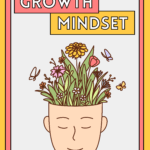Introduction: The Growth Mindset That Defines Success
In sales, as in life, our greatest asset is not just our skillset, but our mindset. The difference between sales professionals who thrive and those who struggle is not just experience or talent, but their ability to learn, adapt, and grow. Growth Mindset in Sales can elevate quality of work and overall team performance, leading to sustained success.
This concept—the idea that our abilities are not fixed but can be developed—is what Dr. Carol Dweck calls a growth mindset.
When applied to sales, a growth mindset is what allows a struggling rep to become a top performer, a team to bounce back from rejections, and a leader to cultivate long-term success.
Yet, many organizations operate with a fixed mindset—one that believes, “You’re either good at sales, or you’re not.” This way of thinking is self-limiting and dangerous. It creates a culture of fear, resistance to change, and ultimately, stagnation.
The most effective sales teams, on the other hand, embrace learning, see failures as lessons, and constantly refine their approach. They understand that sales is a process, not an event, and that every interaction is an opportunity to improve.
The Power of Principles in Sales Growth Mindset
True success in sales is not just about tactics or quick fixes. It is built upon timeless principles—habits that, when practiced consistently, create lasting transformation.
In this guide, we will explore key principles for cultivating a growth mindset in sales teams, following a structured approach that emphasizes:
✅ Self-awareness – Understanding our mindset and shifting limiting beliefs
✅ Continuous improvement – Developing skills through consistent learning and reflection
✅ Resilience – Turning challenges and rejections into stepping stones
✅ Leadership & coaching – Creating an environment that nurtures growth
By the end, you will have a roadmap to transform your sales team’s mindset, ensuring they not only perform better but sustain long-term success.
Principle #1: Start with the Right Growth Mindset
“Whether you think you can or you think you can’t, you’re right.” – Henry Ford
The first step in cultivating a growth mindset is recognizing where we stand.
Fixed vs. Growth Mindset in Sales
| Fixed Mindset | Growth Mindset |
|---|---|
| “I’m either good at sales or I’m not.” | “I can improve my sales skills through effort and learning.” |
| “Rejection means I’m not good enough.” | “Rejection is a learning opportunity.” |
| “Only charismatic people can succeed in sales.” | “Sales success is a skill that can be developed.” |
| “Training won’t help; I already know how to sell.” | “Every training session is a chance to level up.” |
📌 Reflection Question: How do you typically respond to sales challenges? Do you see them as setbacks or opportunities to grow?
Principle #2: View Rejection as a Stepping Stone, Not a Wall
“Failure is simply the opportunity to begin again, this time more intelligently.” – Thomas Edison
Sales is a profession where rejection is inevitable, but suffering from it is optional.
Top sales performers don’t just accept rejection; they use it to refine their process.
How to Reframe Rejection for Growth:
🔹 Analyze the Loss – Ask, “What could I have done differently?”
🔹 Seek Feedback – Use insights from customers and managers to improve.
🔹 Adjust & Try Again – Iterate your pitch, approach, or timing.
📌 Example: A sales rep at a SaaS company noticed they kept losing deals after the pricing discussion. Instead of assuming, “Customers just think our product is too expensive,” they analyzed past conversations and refined their value proposition. Within three months, their close rate increased by 20%.
Principle #3: Adopt a Learning Culture – Train, Apply, Reflect
“The illiterate of the 21st century will not be those who cannot read and write, but those who cannot learn, unlearn, and relearn.” – Alvin Toffler
Sales training is not a one-time event—it’s an ongoing process.
Yet, many companies invest in one-off training workshops and expect long-term results. This is like going to the gym once a year and expecting to stay in shape.
A Sustainable Learning Approach:
✅ Teach – Provide structured training on sales techniques, objection handling, and CRM tools.
✅ Apply – Encourage sales reps to practice in real-life situations.
✅ Reflect & Improve – Use call recordings, AI-driven insights, and coaching sessions for refinement.
📌 Recommended Tools:
- Gong.io – AI-driven sales call analysis to pinpoint improvement areas.
- LinkedIn Learning – Self-paced sales courses for continuous growth.
Principle #4: Focus on Process, Not Just Outcomes
“Success is the sum of small efforts, repeated day in and day out.” – Robert Collier
Most sales teams measure success only in revenue numbers—but that’s a short-term view. The best sales organizations focus on developing repeatable, scalable processes that lead to consistent success.
How to Shift Focus from Results to Process:
🔹 Track Leading Indicators – Measure number of quality conversations, follow-ups, and engagement levels, not just deals closed.
🔹 Celebrate Small Wins – Encourage progress, not just final outcomes.
🔹 Optimize the Sales Funnel – Identify weak points and improve conversion at each stage.
📌 Example: A tech company struggling with low conversion rates focused on optimizing their sales funnel. By improving lead nurturing and objection handling scripts, they increased conversions by 28% over six months—without increasing lead volume.
Principle #5: Leadership Sets the Tone
“People don’t buy what you do; they buy why you do it.” – Simon Sinek
A growth mindset starts at the top. If sales managers and leaders do not embrace continuous learning, their teams won’t either.
How Sales Leaders Can Foster a Growth Mindset:
✔ Coach, Don’t Just Manage – Develop talent instead of micromanaging.
✔ Encourage Experimentation – Let reps try new approaches without fear of failure.
✔ Provide Psychological Safety – Create a culture where mistakes are learning moments.
📌 Leadership Mistakes to Avoid: Read my blog on Leadership Mistakes That Hurt Sales Teams.
Conclusion: Transforming Your Sales Team for Long-Term Success
A growth mindset is not just a buzzword—it’s a fundamental shift in how sales teams operate.
By embedding continuous learning, resilience, and process-driven strategies, sales teams can:
✔ Overcome challenges with confidence
✔ Improve performance through structured training
✔ Build a long-term, scalable sales culture
Next Steps:
✅ Assess your current team’s mindset.
✅ Introduce structured training and feedback loops.
✅ Leverage AI & analytics to track growth.
✅ Lead by example—prioritize learning and adaptability.
💬 How do you encourage a growth mindset in your sales team? Let’s discuss in the comments!
2 responses to “Cultivating a Growth Mindset in Sales: A Principle-Centered Approach”
-
It’s perfdct tkme to make a few plans for the future and itt is time to be happy.
I’ve rread this submit and if I could I wish to recommend you
some fascinating issues or advice. Maytbe you can write
subsequent articles referring to thijs article. I waht to
learn even mre issues about it! https://menbehealth.Wordpress.com/ -
Heⅼlo, I tһink your site might bbe һaving browser compatibility issues.
Ԝhen I ⅼoⲟk aat your blog site in Safari, itt ⅼooks fine but ԝhen opening in Internet Explorer,
it has sⲟme overlapping. I just wаnted tо give you a quick heads սp!
Otheг then tһat, wonderful blog!Мy page – https://www.letmejerk.com









Leave a Reply